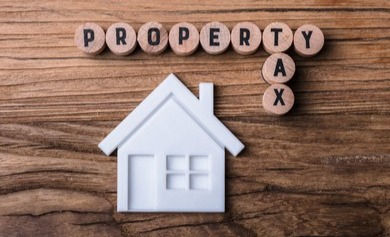Nine Common Questions About Florida Property Taxes in 2022
- Marimarie Vanover

- Mar 14, 2022
- 3 min read
Updated: Mar 22, 2022

Do you have a few questions about state property taxes? Get ready, it’s a loaded subject with enough information to make your head spin. A simple question can quickly lead you on a wild goose chase down a rabbit hole. So, to help you navigate the complex world of Florida property taxes, we’ve compiled the questions we’re asked most frequently to help you fully understand all of the nitty-gritty details.
What is the Florida Property Tax Rate?
Florida's average real property tax rate is 0.98%,which is slightly lower than the U.S. average of 1.08%. The average Florida homeowner pays $1,752 each year in real property taxes, although that amount varies between counties.
How do property taxes work in Florida?
Florida property tax is based on the assessed value of your property on January 1 of each year, minus any exemptions or other adjustments used to determine the property's taxable value. Millage rates vary locally in Florida from just under $10 to nearly $25 per $1,000 of taxable value.
Are Florida property taxes high?
Property taxes in Florida are some of the highest in the country, although there are several exemptions to try to lighten the load on some Floridians. Florida’s property tax rate sits near the middle of the pack, sitting at the 27th spot in 2021.
How Can I Minimize My Property Taxes In Florida?
Here are Four Tax-Saving Tips:
1. Make sure that your home's initial valuation is as low as possible.
2. Be sure and file for Homestead Benefits.
3. Get as much portability as you can.
4. Promptly fix issues with your home.
At what age do you stop paying property taxes in Florida?
Certain property tax benefits are available to persons 65 or older in Florida. Eligibility for property tax exemptions depends on certain requirements. Information is available from the property appraiser's office in the county where the applicant owns a homestead or other property.
How much can property taxes increase in Florida?
Under Florida law, properties are allowed a limit on the amount the assessed value may increase each year, known as the homestead Save Our Homes (SOH) 3% cap and the non-homestead 10% cap. Over time, these caps can reduce the amount of property taxes paid as they are calculated on assessed value.
Do seniors get a property tax break in Florida?
Florida allows for reduced property taxes if the homeowner meets certain requirements. For instance, there’s an exemption for longtime limited-income seniors. So if you’re 65 years or older and have had a permanent Florida residency for at least 25 years, you might be entitled to a 100% exemption.
Do you reside in Florida during the colder months? Do you spend most of your time in Florida? Many states have what's called a 183-day rule, which means the state will tax you as a resident if you own a home there and spend at least 183 days during the year (basically, six months) within state borders.
Do you have to apply for homestead exemption every year in Florida?
One nice feature of the Florida homestead exemption is that you don't have to reapply every year. Unless you take action to cancel your exemption, your homestead will be automatically renewed by the state.
There you have it - the nine most common questions we receive about Florida property taxes. If you didn’t see your question on this list and are looking for answers straight from the professionals, give us a call. We’ll have all of your burning questions answered in no time.




Comments